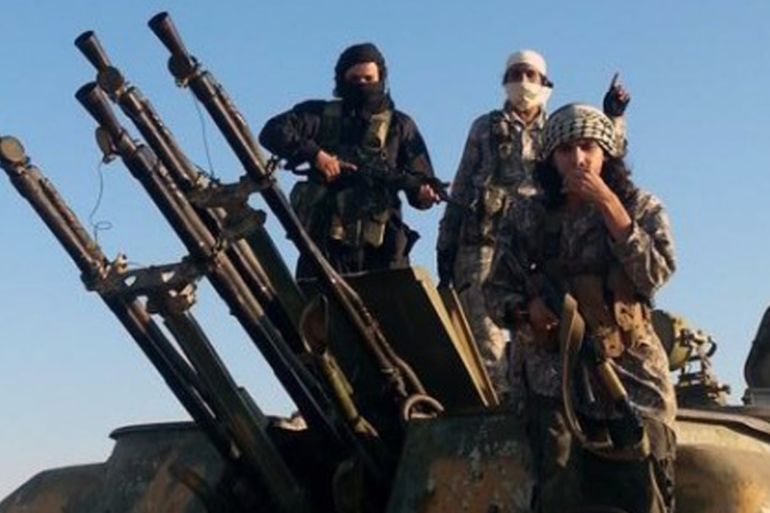Cutting ISIL’s money supply
Cutting off the group’s ties to the global financial system is as important to fighting ISIL militarily, the US says.

The fight against the Islamic State of Iraq and the Levant (ISIL) isn’t just a military one, according to the US government. Cutting off any ties to the global financial system is just as important, according to the US Treasury and State Department.
On Tuesday, the US announced new sanctions against 30 individuals and organisations with ties to ISIL. Those individuals include Tarad Mohammad Aljaraba, a Saudi national who reportedly helps shuttle people in and out of ISIL territory via Turkey, and Aqsa Mahmood, a British national from Glasgow who is being targeted for recruiting women via social media and being a member of an “all-female police unit” in ISIL-held territory in Syria.
Keep reading
list of 4 itemsMoscow theatre attack suspects show signs of beating in court
Four men showing signs of severe beating charged over Moscow concert attack
Russia mourns Moscow concert hall attack victims as death toll rises to 137
The US says this is an important step in the fight against the group but how effective will it be? US officials admit that most of ISIL’s money comes from revenue generated within its own territory in Syria and Iraq. According to the Rand Corporation, oil revenues, selling looted antiquities on the black market and local taxation are the primary sources of funding for the group.
Many analysts say the effect of the new sanctions will be minimal and have little real impact in stopping them.
“The effect will be in the black and grey market,” said Christopher Swift, a National Security Studies professor at Georgetown University in Washington, DC. “Anyone who does business with ISIL will be punished.”
Blaise Misztal, from the Bipartisan Policy Center, added that the sanctions raise, “a red flag for partner countries, such as Turkey, in which these individuals might be trying operate.”
But according to Swift, there’s another important reason for the move. The White House has been pushing the US Congress to give them new legal authority to conduct military operations against ISIL. Earlier this year, US President Barack Obama submitted a draft resolution to lawmakers for the Authorisation for Use of Military Force (AUMF) that would grant him that power.
According to Obama, the authorisation would hand him, “the flexibility to conduct ground combat operations in other, more limited circumstances, such as rescue operations involving US or coalition personnel or the use of special operations forces to take military action against ISIL leadership”. At the moment, US operations have been limited to military training and a bombing campaign.
But so far, the Republican-controlled Congress has yet to pass it. By expanding US powers financially against ISIL, this new move, according to Swift, is an acknowledgement, “that thing [AUMF] is going nowhere”.